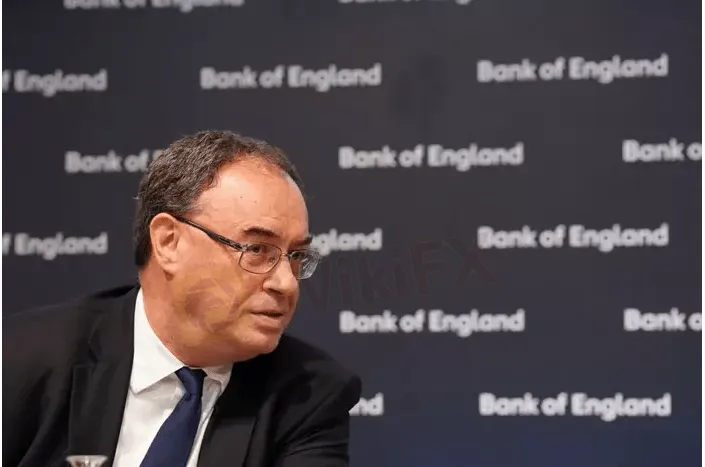简体中文
繁體中文
English
Pусский
日本語
ภาษาไทย
Tiếng Việt
Bahasa Indonesia
Español
हिन्दी
Filippiiniläinen
Français
Deutsch
Português
Türkçe
한국어
العربية
UK inflation still likely to fall sharply next year, BoE’s Bailey says
Abstract:Bank of England Governor Andrew Bailey said on Monday that he thought the BoE’s most recent forecast for inflation, showing it was likely to fall sharply next year, remained valid.

Bailey told a parliamentary committee that he did not expect a new set of forecasts due on Aug. 4, which BoE staff were preparing, to show a fundamentally different picture.
“I always go into forecasts with an open mind, and thats critical, but I think the basic fundamentals of that profile remain in place today,” Bailey told lawmakers.
Inflation, which hit a 40-year high of 9.1% in May, was likely to be back at its 2% target in about two years, he added.
However, possible further upward pressure on gas prices following Russias invasion of Ukraine, or more persistent domestic cost pressures could change that, Bailey said.
The BoE had previously forecast that inflation would peak at just over 11% in October this year when regulated power tariffs are set to jump again.
Investors see a nearly 70% chance of a bigger-than-usual, half-percentage-point rate hike by the BoE on Aug. 4. The central bank has already raised borrowing costs five times since December.
The BoE said last month it was ready to act “forcefully” if needed to prevent high inflation from becoming embedded in the economy.
Bailey said there was “a range of things” on the table for the BoEs Monetary Policy Committee in August. Policymakers had to assess how much the shock to incomes from high energy prices would cool inflation through lower spending on other goods and services.
Bailey declined Labour Party lawmakers‘ requests for comment on the inflationary potential of tax cuts being proposed by candidates in the Conservative Party’s leadership contest, including new finance minister Nadhim Zahawi.
But Bailey did say it was important that the BoEs operational independence was respected at a time when some lawmakers have blamed it for high inflation and forecasters expect inflation to be slower to fall in Britain than elsewhere.

Disclaimer:
The views in this article only represent the author's personal views, and do not constitute investment advice on this platform. This platform does not guarantee the accuracy, completeness and timeliness of the information in the article, and will not be liable for any loss caused by the use of or reliance on the information in the article.
Read more

Forex Candles - What Value Do They Add to Your Trading Experience?
Wondering where you can see the forex price movement information? Easy, it’s all there on forex candles, which demonstrate different market sentiments to help traders make informed decisions. Keep reading to learn more.

Risky Choice? What Traders Should Know About Bold Prime
Risk exists everywhere — even well-known brokers are not exceptions. But they often don’t talk about the risks. Instead, they highlight their strengths and try to attract customers while hiding the potential downsides. However, in this article, you’ll learn about the risks involved with Bold Prime.

Forex vs Stocks - Which Can Generate Maximum Earnings for You?
When looking to build wealth at a faster pace, stocks and forex emerge as two powerful alternatives. But which holds more profit potential? Which of the two is riskier? Find out the answers here.

From Novice to Pro: Why Investors Trust Land Prime?
If you're passionate about forex trading and ready to begin your journey as a trader, this article is worth exploring. It highlights the key features that Land Prime offers to both traders and investors.
WikiFX Broker
Latest News
Top Wall Street analysts are upbeat about these dividend-paying stocks
Singapore's economy grows 4.3% in second quarter, beating expectations
In middle of Trump's trade war, importers hold more cash and move inventory off the books
Asia-Pacific markets trade mixed as investors assess Trump's latest tariff threats; bitcoin hits new highs
Gold Soars Above $3,350 as XAU/USD Rallies on Trade Tensions
What WikiFX Found When It Looked Into Emar Markets
Short or Long Term: Which to Choose for Double-Digit Returns from Gold Investments?
What is Forex Trading Simulator?
MT4 vs MT5 Which Forex Trading Platform Fits Your Needs in 2025?
Stock futures slide on more Trump tariff letters, but are off worst levels of session: Live updates
Currency Calculator


